May 19, 2025 | 01:08 GMT +7
May 19, 2025 | 01:08 GMT +7
Hotline: 0913.378.918
May 19, 2025 | 01:08 GMT +7
Hotline: 0913.378.918
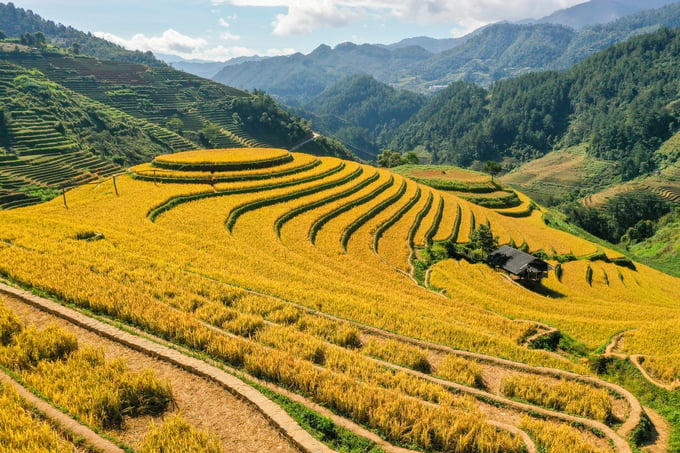
Mu Cang Chai terraced fields are a unique natural landscape, attractive to tourists. Photo: Tung Dinh.
Mrs. Luong Thi Xuyen, Vice Chairwoman of the People's Committee of Mu Cang Chai district (Yen Bai) said that this is one of the two western highland districts of Yen Bai province with an area of about 1,200km2, a population of approximately 68,000 people with special characteristics. 91% are Mong people, so local identities are closely tied to Mong traditions.
Previously, people's lives mainly relied on forests and fields. People worked in agriculture and forestry in the forests and grew rice in terraced fields. In recent years, with diligence and creativity, local people have created a large-scale terraced field system that attracts tourists from all over the country and even international visitors.
Mu Cang Chai terraced fields have, therefore become a special national monument, highly appreciated by many tourism organizations around the world.
"Based on promoting the beauty of the special landscape of terraced fields as well as the unique features of the indigenous ethnic identity, the people of Mu Cang Chai have learned to do tourism and create more services to develop tourism. tourism development," Mrs. Xuyen shared.
From there, increasing income for people and becoming a solution to help people eliminate hunger, reduce poverty and remove Mu Cang Chai from the list of poor districts nationwide.
According to the Vice Chairman of the District People's Committee, the local advantage is in tourism, mainly natural landscape tourism and the identity of local ethnic people. These two factors have created the appeal of Mu Cang Chai. Having determined that, local authorities have had solutions to develop accordingly.
First, announce district-level planning and detailed planning of towns and communes such as Nam Khat and Pung Luong on tourism. In each plan, Mu Cang Chai district authorities always emphasize attractive destinations and delineate areas with potential for tourism development. Accordingly, currently, the district has 5 subdivisions for tourism development.
The second solution is to improve quality and create typical tourism products for Mu Cang Chai. For example, community tourism products are associated with the identity of Mong people in villages.
In addition, there is also an adventure tourism model, combining adventure sports to attract tourists, such as paragliding at Khau Pha pass. In addition, it coordinates the organization of annual running tournaments, as well as climbing and picnic programs in primeval forests.
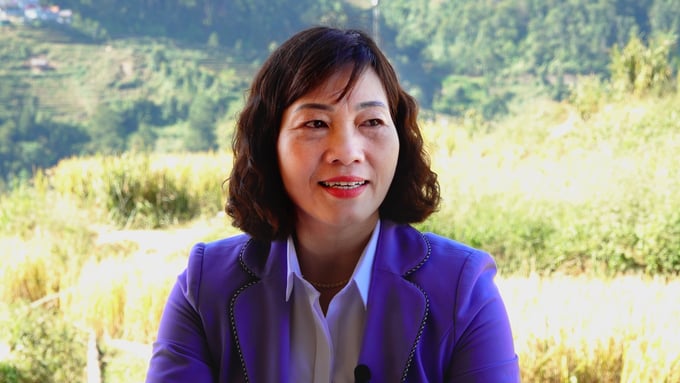
Mrs. Luong Thi Xuyen, Vice Chairwoman of Mu Cang Chai District People's Committee, shared about local tourism development. Photo: Pham Huy.
With the advantage of indigenous culture, Mu Cang Chai district is also investing in festival tourism activities, divided into 4 seasons of the year so that visitors can enjoy the festive atmosphere in all seasons. These solutions have contributed to increasing income and improving people's lives in Mu Cang Chai.
From that orientation, the district focuses on improving tourism support products, such as indigenous agricultural products, especially OCOP products such as honey, tea, pá dù, khẩu sli, khẩu thọng chảy to provide to tourists when they come to visit.
The third solution raised by the Vice Chairman of the People's Committee is that the district has training and fostering programs to improve the quality of tourism human resources in the area. This can be considered a long-term solution. These include state management officials in tourism, cooperatives, homestay owner systems, and people working as tour guides... all are trained and participate in training classes to become more professional.
The district's fourth solution is to invest in and build infrastructure systems, with special attention that when making, it will be associated with protecting environmental resources and preserving landscapes in tourist areas.
"To do these things, the district has made efforts to attract investment from large investors to create links between modern tourist areas and traditional, unique tourist destinations in Mu Cang Chai. This helps tourists have many choices when coming to the locality and will leave with a comfortable and happy spirit after their experiences here," Mu Cang Chai district leaders further shared.
As a highland district of Yen Bai province, Mu Cang Chai has potential and strengths in natural landscape and ethnic cultural identities. Therefore, tourism development is considered a lever to help people reduce poverty sustainably.
Mu Cang Chai is located nearly 200km west of the center of Yen Bai province. The district has a total natural area of more than 1,200 square kilometers and a population of over 68,000 people, of which 91% are Mong people.
Mu Cang Chai terraced field complex has a total area of over 7,000 hectares, of which the Prime Minister has recognized more than 850 hectares of core area as a remarkable National Monument in 2019 located in communes La Pan Tan, De Xu Phinh, Che Cu Nha, Kim Noi, Mo De, and Lao Chai. These are the attractions that attract many tourists to this land.
Translated by Tuan Huy

(VAN) Deputy Minister Nguyen Quoc Tri also expressed his hope that Cuba will soon overcome its current challenges, attain food security, and further expand cooperation with Vietnam.

(VAN) The project contributes to enhancing the resilience of communities vulnerable to the impacts of climate change, with a primary focus on local women.
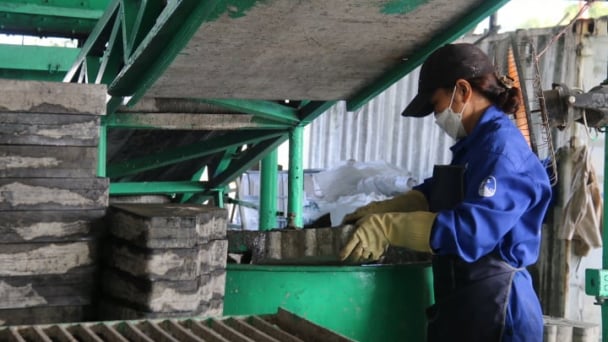
(VAN) Green materials help save energy and resources. However, after more than 10 years, Vietnam has only developed over 200 green buildings with more than 6 million square meters of floor space.
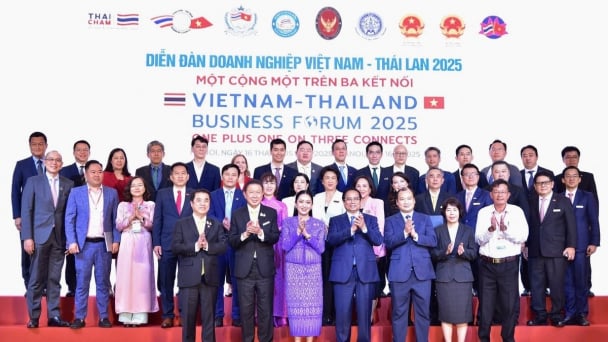
(VAN) Vietnam - Thailand Business Forum 2025: One plus one on three connects, marking a milestone in the comprehensive strategic partnership between the two nations.
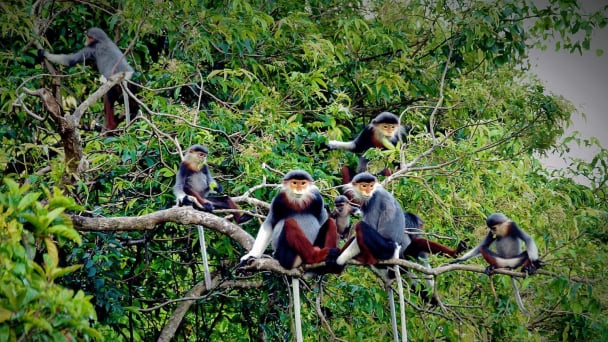
(VAN) The United Nations designated 22 May as the International Day for Biodiversity 2025 with the theme 'Harmony with nature and sustainable development.'
![Multi-channel, multi-directional Vietnamese agricultural markets: [8] A national strategy is needed](https://t.ex-cdn.com/nongnghiepmoitruong.vn/608w/files/phucpm/2025/05/15/1435-thi-truong-nong-san-viet-da-kenh-da-huongbai-8-can-mot-chien-luoc-quoc-gia-084750_728.jpg)
(VAN) The Chairman of Hung Nhon Group shared: ‘Opening up and tapping into new markets is the right and strategic direction for Vietnam's agricultural sector.’

(VAN) Food waste has become a serious issue in modern society, especially in rapidly urbanizing and developing cities like Hanoi.